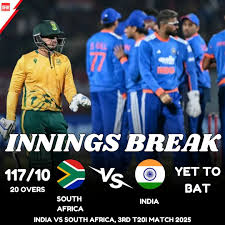The Competitive Rivalry: Nigeria vs South Africa

Introduction
The rivalry between Nigeria and South Africa is one of the most significant in Africa, encompassing sports, economics, and cultural relations. As two of the continent’s largest economies and influential nations, their interactions often reflect broader dynamics within the region. Recent events have renewed interest in this rivalry, particularly in the context of sports and diplomacy.
Sports: A Historical Context
The sporting rivalry, notably in football, has deep roots. The football teams of Nigeria and South Africa have faced each other numerous times, often sparking intense national pride. The South African national team, known as Bafana Bafana, and the Nigerian Super Eagles have clashed in pivotal matches, including the 1996 Africa Cup of Nations final, where South Africa emerged victorious. This year’s clashes, including World Cup qualifiers, have reignited fierce competition on the pitch, drawing significant attention from fans and causing discussions about who holds the title of African football powerhouse.
Economic Dynamics
Beyond sports, Nigeria and South Africa play crucial roles in the African economy. As of 2023, Nigeria is the largest economy on the continent, driven by its oil and gas sector, while South Africa is known for its diverse economy, including mining and finance. Recent statistics show that Nigeria’s GDP has shown signs of recovery post-pandemic, with projections indicating a growth rate of about 3.2% in 2023. South Africa, with a projected growth rate of 2%, faces challenges, but its economic resilience continues to affirm its role as a continental leader.
Cultural Exchanges
In the realm of culture, the influence of both nations continues to expand internationally. Nigerian music, particularly Afrobeats, has gained global recognition, significantly impacting South African artistes and youth culture. Likewise, South Africa’s rich heritage and diverse languages attract attention, contributing to continental integration. Notably, cultural exchange programs and collaborations between the two countries have been established, promoting unity and understanding.
Conclusion
The Nigeria vs South Africa rivalry extends far beyond mere competition in sports; it encapsulates broader themes of identity, economic power, and cultural influence. As both nations continue to evolve and face new challenges, the significance of their rivalry is likely to grow, reflecting changes in the geopolitical landscape of Africa. As more sporting events and economic collaborations unfold, the relationship between Nigeria and South Africa will remain a vital area of interest for analysts, fans, and policymakers alike.








